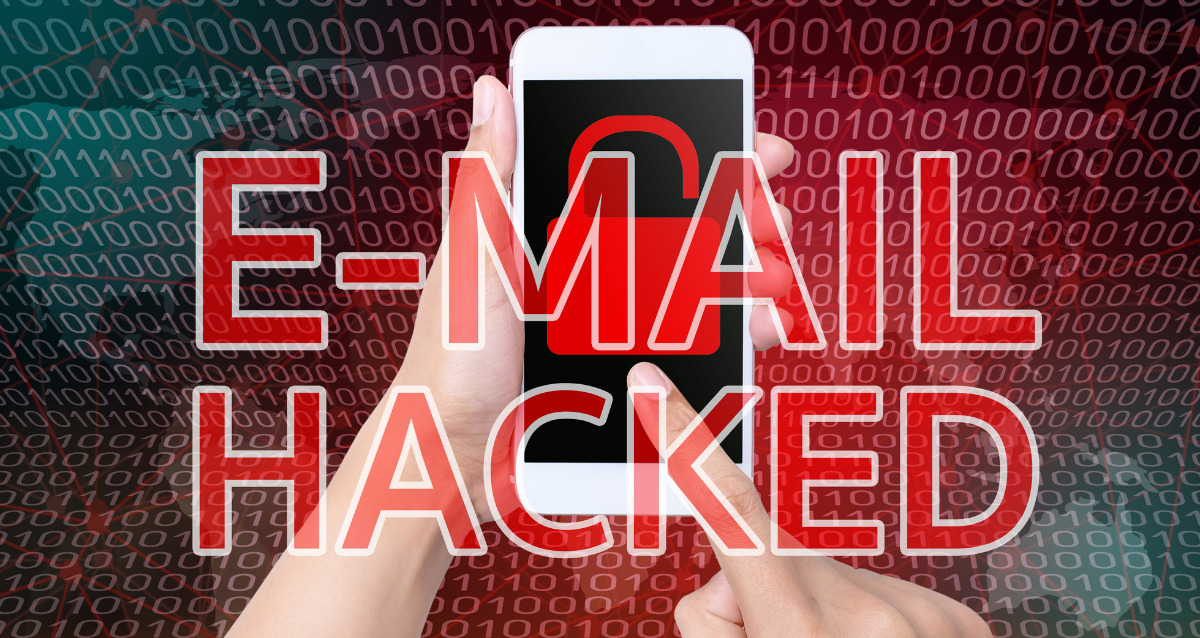These days, a thief never has to step foot near your place of business to steal some of your most valuable assets — your data. Statistics estimate over 90% of malware attacks are delivered via email, and over half of IT decision-makers view targeted phishing attacks as their top security threat.
How Do I Know if I’ve Been Hacked?
Common signs of compromise include sent and deleted emails you are positive you didn’t send or delete. Other times, a coworker or friend who received a suspicious email will notify you. If the hacker is very skilled, these small inconsistencies can be hard to detect. Check out this blog for more information on how these hackers access your email accounts!
What Do They Want to Steal?
These bad guys aren’t the same as a coworker seeing your computer unlocked and sending a funny video out as a prank. Most of the time, they’re looking to initiate financial transactions to steal from you or someone you’ve emailed. Both these and other targeted attacks can be instigated through information hidden within your inbox and outbox, such as:
- Passwords to other accounts
- Account numbers
- Bank information
- Information to steal your identity
- Information they can use to blackmail you or ruin your reputation
- Information that can help them gain access to accounts owned by others, such as coworkers or family
- Information about others stored in your emails, such as medical records or drivers license numbers
Using Your Email to Hack Others
As noted above, cybercriminals can use the information they find in your email to hack other coworkers or even anyone you’ve emailed, causing a quick spread of a serious problem. Hackers can also send emails from your address, which usually have one of two motives: harming you or harming others.Because they can send emails that are otherwise believed to come from you, hackers can cause problems that could get you in trouble at work, impersonate you in messages sent to family and friends, or send spam emails to everyone on your contact list. While some people may catch on that your email has been hacked, it’s difficult to guarantee there will be no personal or professional repercussions. Secondly, cybercriminals can send phishing emails. They have your email address, and they have personal information — all they need now is your passwords. Phishing emails are designed to look like they’re from trusted sources, yet they link to a website that, for instance, LOOKS like Amazon but isn’t. When you log into the fake website, the hacker now has your username and password for the real account.
Prevention and Response
Outside of having the proper cybersecurity measures in place, such as staying up-to-date with software patches and employee training on cybercrime-related issues, you can help prevent and detect email hacks by using unique passwords on all your accounts and turning on two-factor authentication. Secondly, be aware of inconsistencies in your email, such as occasionally checking the sent or deleted emails to ensure there isn’t anything you don’t recognize. If you think a compromise has already occurred, read our article on what to do if you have a data breach.Email provides your business with a critical communication tool. It’s therefore critical that no bad actors are in control of your emails. At Sawyer Solutions, we believe awareness, proactivity, and training are key in preventing data breaches such as email compromise. We spend a lot of time working with clients to help prevent these and other hacks, and we can do the same for you! Give us a call at 844-448-7767 or contact us here.

